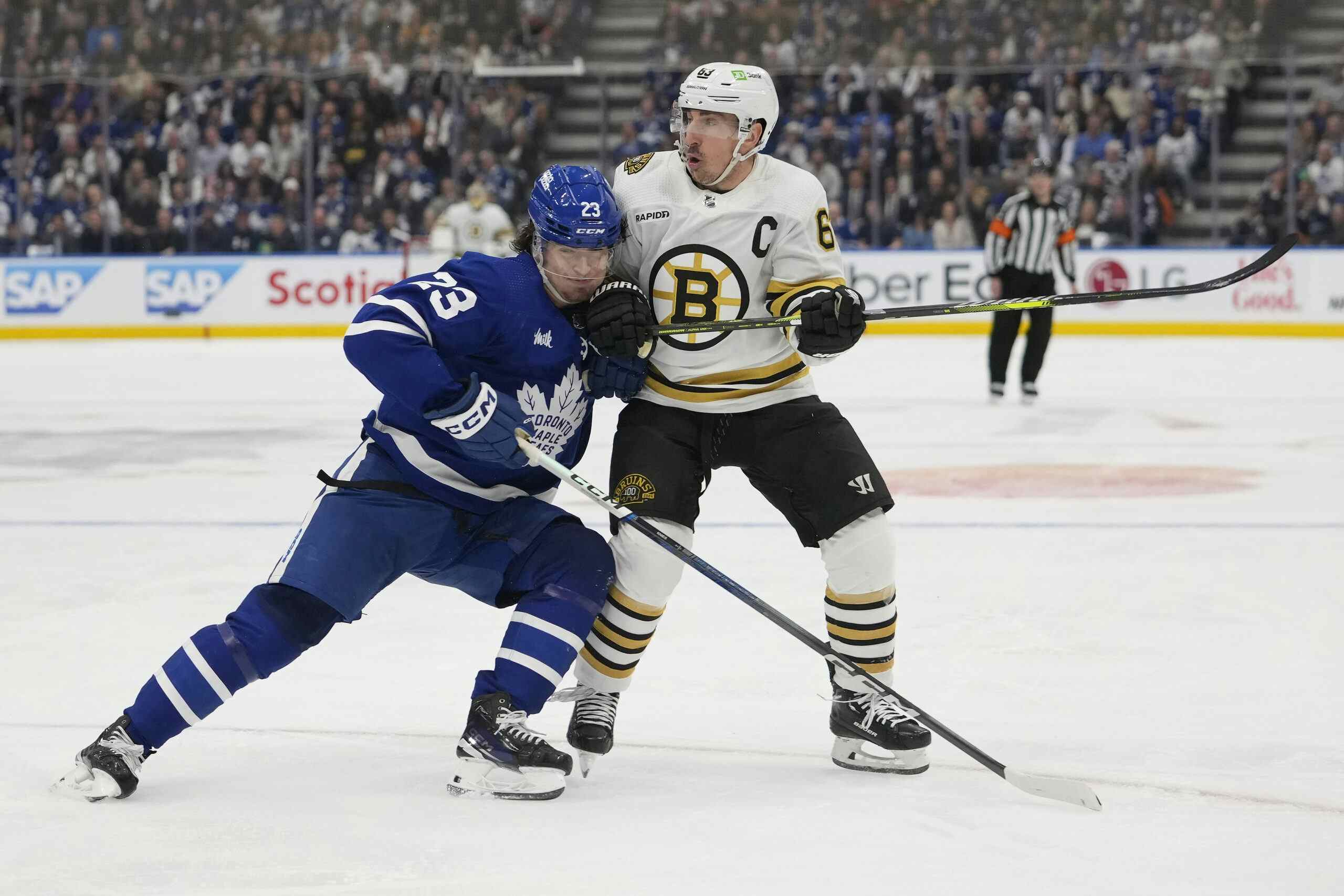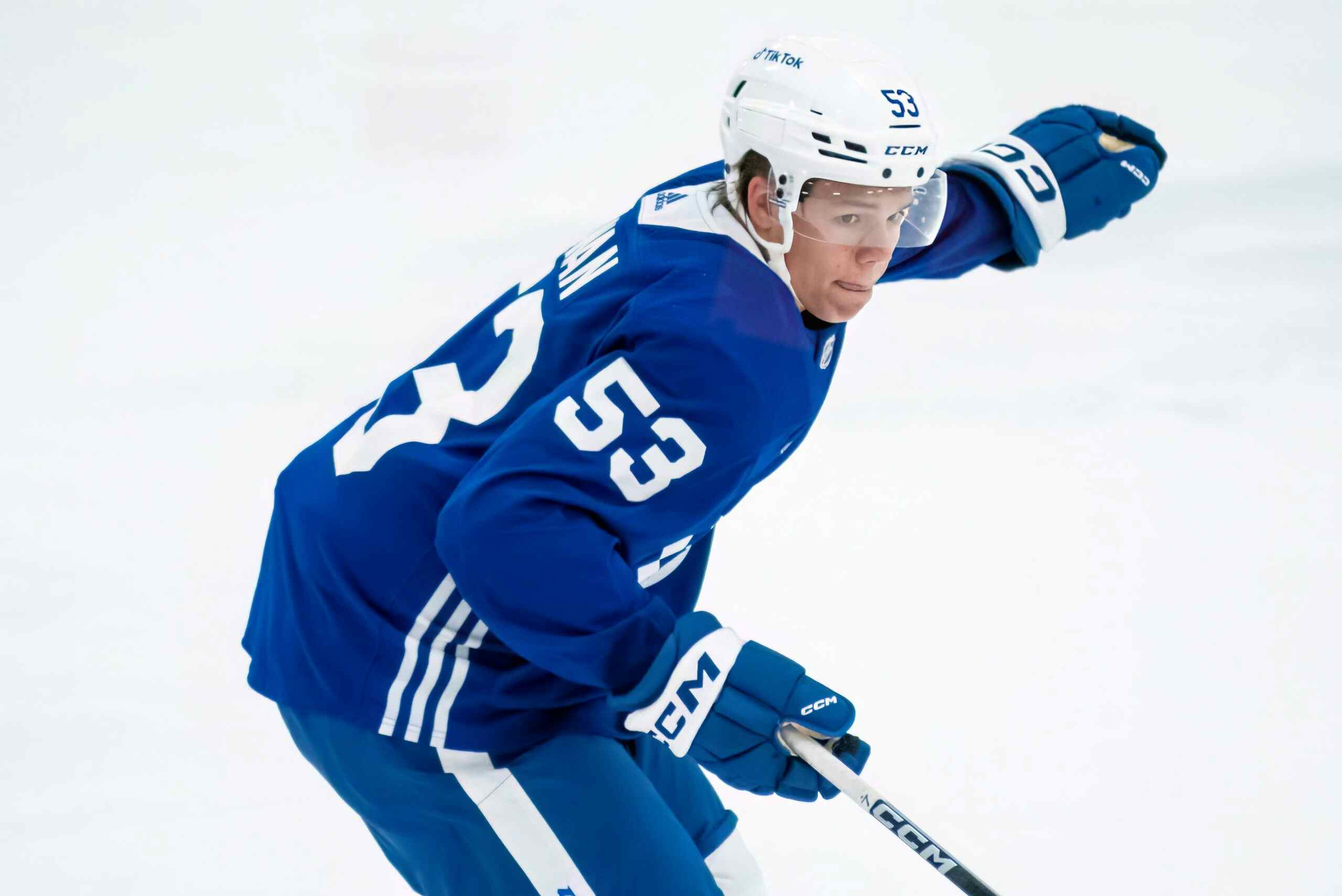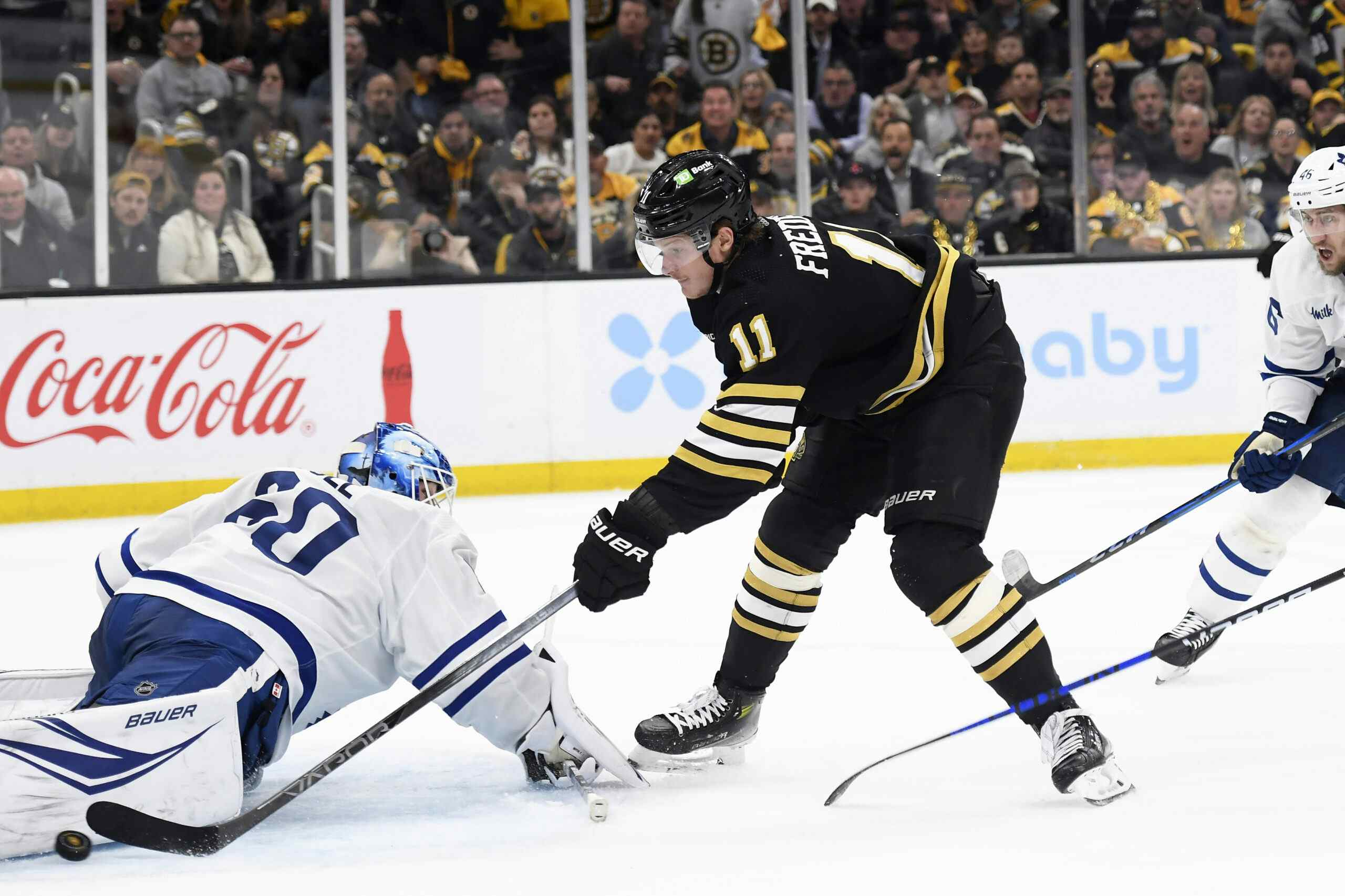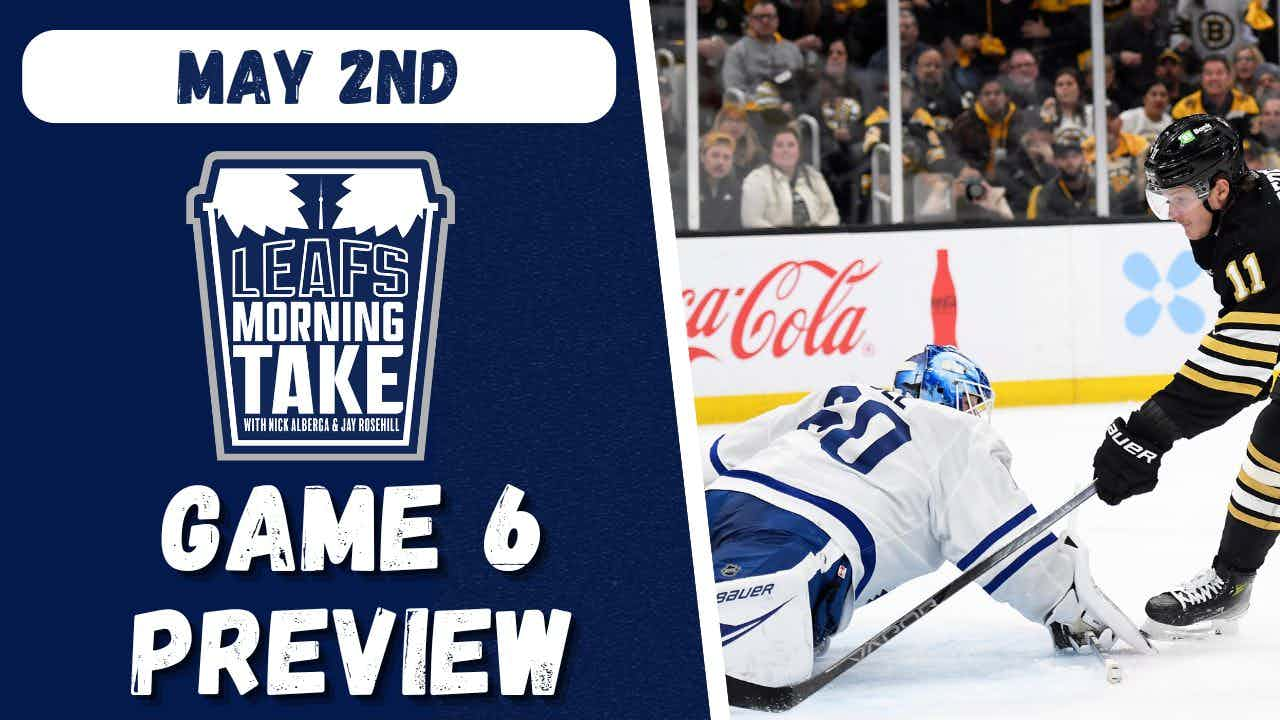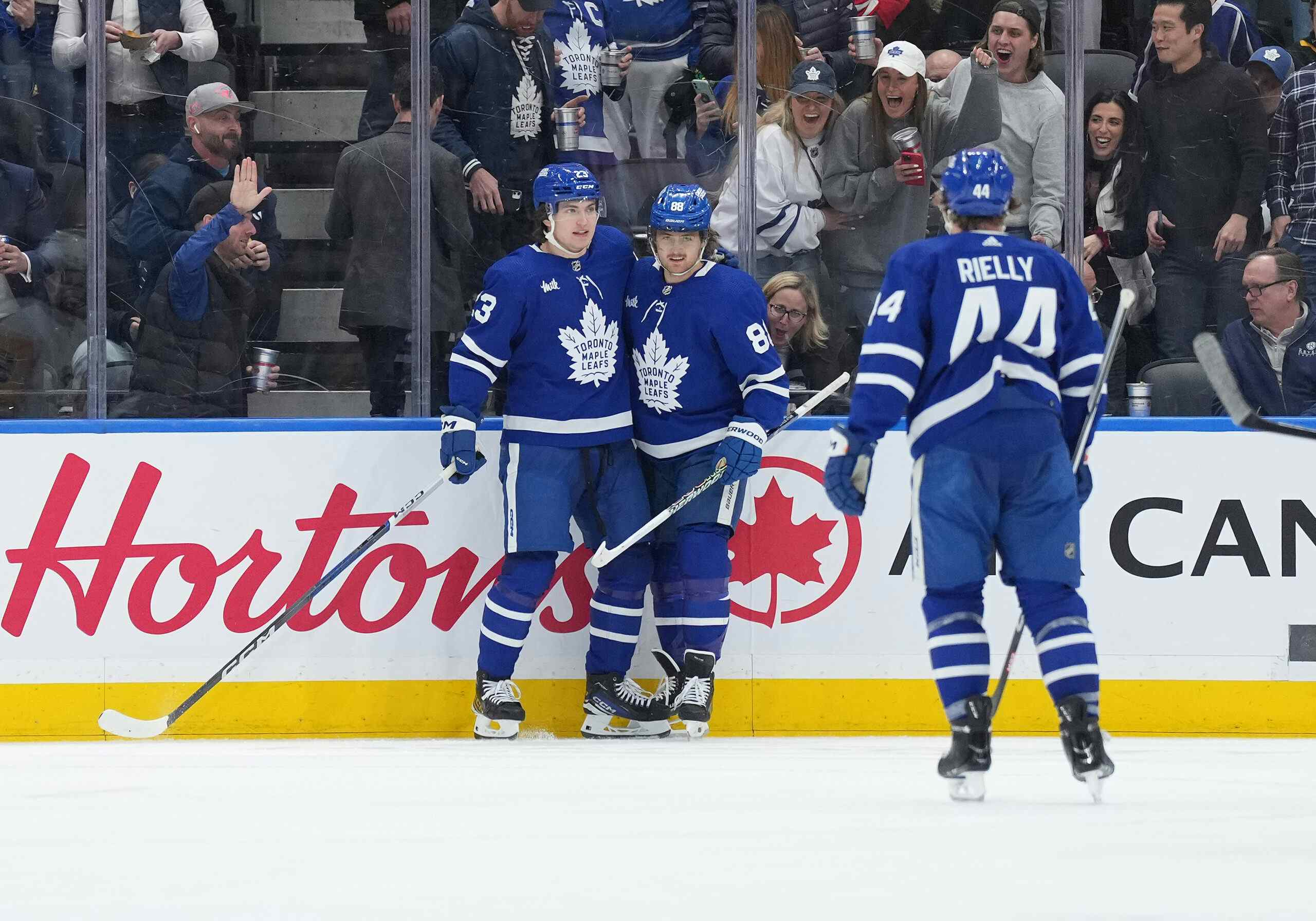The Underlying Numbers of the Leafs’ Head Coaching Candidates
By Shawn Reis
8 years agoIn the recent days and weeks there seems to be more of a buzz surrounding the Leafs’ search for a general manager and head coach. It’s been a month now since the Leafs’ season ended, and a month since Peter Horachek and Dave Nonis were relieved of their respective duties. We are heading into the middle of May now. Soon there will only be 4 teams whose NHL season is still alive. And of course, the draft and free agency are starting to come into sight. In other words, it’s getting likelier and likelier that the Leafs will make a decision about their new manager and bench boss sooner rather than later.
Here at TLN we’ve been pumping out a lot of content about prospective coaches and GMs, creating mock resumes that give you a glimpse of what these hockey minds have to offer. What we haven’t done a lot of though is compare these people with each other. We’ve really only touched the surface of what some of the Leafs’ head coaching candidates bring to the table. Today, I want to take you beneath that surface.
Let’s take a look at something that is of concern not just to a lot of Leaf fans, but seemingly the new management team itself. Let’s take a look at how some of the Leafs coaching candidates fair when it comes to advanced stats.
INTRODUCTION
This article is going to be broken up into four main parts: ShotsForPer60, ShotsAgainstPer60, CorsiFor%, and ScoringChancesFor%. The commentary on these categories, for the most part, will be minimal. Rather, I’m just going to show you a collection of tables ranking a select list of coaches based on that stat. You should be able to draw some of your own conclusions based on these tables.
So who are the coaches? Most of the usual suspects. Mike Babcock, Todd McLellan, Dan Bylsma, Paul MacLean, Peter DeBoer, Dallas Eakins, and Guy Boucher. I’ve also included two other coaches that could be of interest to the Leafs that have head coaching experience in the NHL in Tony Granato and Davis Payne.
Note that the likes of Jeff Blashill and Sheldon Keefe aren’t being discussed in this article because there is no sample of their possession numbers to draw from that would be reasonable to compare, because these coaches have no head coaching experience in the NHL.
So without further ado, let’s get started.
SHOTS FOR PER 60
Below is a table ranking the nine NHL coaches I’ve chosen to compare, by season, using the stat ShotsForPer60, from highest to lowest:

At first glance, Mike Babcock really stands out above the rest in this category. Granted, his best seasons came in the previous decade when Detroit was at their very best under him. Nicklas Lidstrom probably plays a big role in that.
But, on the whole, I think it’s fair to say Babcock is a little bit better at generating shots than the rest of the coaches on this list. After Babcock, there’s a fairly even smattering of Dan Bylsma, Todd McLellan, and Paul Maclean, all of whom have done a strong job of generating shots on goal over their coaching careers.
After that, Davis Payne is in something of a middle tier as far as generating shots goes. Then there’s the likes of Dallas Eakins, Guy Boucher, and Tony Granato who rank below average in this category.
And then there’s Peter DeBoer. If Babcock stands out in a good way as far as generating shots goes, DeBoer sticks out like a sore thumb for all the wrong reasons. Whether he was coaching Florida or New Jersey (but especially when he was coaching New Jersey), DeBoer’s teams really struggled to generate shots on goal.
SHOTS AGAINST PER 60
Our nine coaches ranked best to worst (by season) in SA60:

I didn’t want to rag on Peter DeBoer too much for being really bad at generating shots, because his teams have historically been really good at suppressing them. Well, they were really good at suppressing them in New Jersey anyways (where Lou Lamoriello might have gently nudged him towards playing a trapping style).
On a related tangent, you can really start to see why Babcock is considered so great as a coach. Sure his teams are great at generating shots, but Babcock’s teams are also among the very best at suppressing them. To get the best of both worlds and to be so good at it really is incredibly impressive. Again, the players he has at his disposal helps, but clearly he knows what he’s doing.
I’d put Dan Bylsma as the third best at suppressing shots after DeBoer and Babcock, but not by much. Todd McLellan is close behind. Davis Payne’s Blues were also quite good at suppressing shots. And while Tony Granato had a miserable defense to work with in his only season as the head coach of the Avalanche in the advanced stats era, Colorado did a good job keeping shot totals down. Guy Boucher, too, did a good job. Dallas Eakins was just okay (one good year and one awful year).
Of note on the bad end of things would be former Ottawa Senators coach Paul MacLean. He was among the highest ranked when it came to generating shots, but his teams were almost equally as bad at giving them up. This would be one argument in favor avoiding MacLean as the new coach.
CORSI%
Our nine coaches ranked from best to worst (by season) in Corsi%:

We’ve looked at generating shots and suppressing them on an isolated level. But that’s mostly just to get an idea of the strengths and weaknesses to a coaches system. What’s more important is how the two combine and whether or not a team ultimately comes out on the right side of 50%. So let’s take a look.
Again, more dominance from Mike Babcock. Yeah, this guy is a pretty good coach.
DeBoer had a couple of seasons with the Devils that were dominant in the possession game. He also had a couple average seasons and then a trickling of really poor ones. On the whole though, let’s call him a strong puck possession coach. Todd McLellan can be rated at a similar level.
Dan Bylsma is a pretty good possession coach. He had McLellan beat at shot suppression, but comes out a little behind him in Corsi. Davis Payne and Paul MacLean seem to be in the same class as Bylsma as far as overall puck possession goes.
Guy Boucher had a strong puck possession year followed by two really bad ones. I guess teams figured out that 1-3-1 pretty quick. Tony Granato and Dallas Eakins weren’t very good at puck possession, but they also were working with bad rosters. Eakins actually showed some real signs of life this past season before getting fired, posting a 50.9% Corsi through two-and-a-half months of the season.
SCORING CHANCES FOR %
Our nine coaches ranked best to worst (by season) in ScoringChancesFor%:

Aside from Mike Babcock being a fancy stats God, Todd McLellan really shines in the scoring chances category. Really, he’s right up there with Babcock. Peter DeBoer, at least in two of his great seasons with the Devils, was right in the mix as well.
After that, Dan Bylsma is in a bit of a tier of his own. So Bylsma’s Penguins fared pretty well in all of the categories we looked at.
Next up would be Davis Payne and Paul MacLean, whose teams in each of the four categories we’ve looked at consistently tended to boast good underlying numbers, though not in the elite mix among the other available options.
Another common trend that has really emerged in looking at these tables is that after his first stellar season in Tampa, Guy Boucher’s teams really fell of a cliff. His 1-3-1 system was all the rage when he first came onto the scene, but it looks as though opposing coaches found a way to get around that system once they had an offseason or two to study it closer.
After that, Tony Granato and Dallas Eakins rank pretty poorly as far as generating scoring chances go. Peter DeBoer also had some teams that were really bad when it came to winning the scoring chances battle, though that was mostly with Florida.
DISCUSSION AND CONCLUSION
Based on all four of the categories we looked at, I would rank the nine coaches being compared here something like this:
1. Mike Babcock (elite underlying numbers)
2. Todd McLellan (excellent underlying numbers)
3. Dan Bylsma (excellent underlying numbers)
4. Peter DeBoer (recently excellent underlying numbers, but also inconsistent)
5. Paul MacLean (good underlying numbers)
6. Davis Payne (good underlying numbers)
7. Dallas Eakins (awful underlying numbers in his first season, but showed some signs of improvement before getting fired this past year)
8. Tony Granato (poor underlying numbers albeit in a small sample size)
9. Guy Boucher (underlying numbers trending hard in the wrong direction)
—
Despite being a rebuilding team, given the Leafs’ recent pursuit of the likes of Mike Babcock and Todd McLellan, it seems the Leafs would still like to hire a coach that we would normally associate with a contending team. Given this, Babcock, McLellan, and Dan Bylsma seem like they should be among the frontrunners in the Leafs’ coaching search.
However, I don’t think you can completely rule out anybody from this list, if only because the team may also want a “player’s coach” that can help develop young players and ease the transition as the team goes through a rebuilding phase. The likes of Dallas Eakins, Tony Granato, and Guy Boucher could provide that. Another argument in favor of those coaches is that Eakins was showing signs of improvement before being fired in Edmonton (similar, perhaps, to someone like Peter DeBoer who went from awful to great in the fancy stats game transitioning from Florida to New Jersey). For Tony Granato, working as an assistant along the likes of Dan Bylsma and Mike Babcock in recent years could be reason to suspect improvement in puck possession ability. He was also working with a really bad team in that season with Colorado. And for Guy Boucher, who knows? He’s been out of the league for over two years now and you’d have to think he’s thought of how he could improve his team’s performance if he were to be given a second chance in the NHL.
And of course, Peter DeBoer, Paul MacLean, and Davis Payne deserve consideration too. DeBoer’s puck possession numbers were inconsistent, but he did get two phenomenal seasons out of a New Jersey Devils roster that probably shouldn’t have been as good as they were. So, there is upside there. Davis Payne had good puck possession numbers with a young St. Louis team and seems to have aided in the growth of that young squad that is now an annual Cup contender. Serving as an assistant alongside Darryl Sutter whose King’s have been the league’s top puck possession team in recent years is encouraging too. And for Paul MacLean, he did get good numbers out of a mediocre Ottawa roster and even won the Jack Adams Award in 2013. He’s a solid coach and deserves consideration.
Of course, there are other coaches that we don’t have NHL samples for that could provide strong puck possession numbers as well. Jeff Blashill is coming from the Detroit Red Wings organization who have consistently churned out coaches with great underlying numbers (McLellan, MacLean, and current Carolina Hurricanes head coach Bill Peters). Sheldon Keefe of the Sault Ste-Marie Greyhounds in the OHL has always emphasized puck possession for his teams and seems to think the game in a similar way to Leafs assistant and former Greyhounds GM Kyle Dubas.
In any event, there can be an argument made for just about any coach for the Leafs mainly because the team is rebuilding. If they were looking to contend I would rather strongly want the team to focus mainly on the likes of Babcock, McLellan, Bylsma, and DeBoer, as well as Jeff Blashill. But it’s going to be a young team, and probably one that isn’t very good, and so maybe you look for a coach whose #1 strength is developing young players as opposed to being good at puck possession. Granted, the top tier puck possession coaches that we’ve talked about mostly seem to be adept in that area as well (save for perhaps Peter DeBoer). There’s also the added benefit of a team with poor puck possession being more likely to lose games, which in turn brings a higher draft pick. I mean, you shouldn’t just go out and hire Ted Nolan in hopes of losing a lot of hockey games. But someone like Mike Babcock immediately makes your team better. Maybe not to the point where you are a playoff team, but enough that the team loses out on a chance to draft really high which could and should be a legitimate concern for a team that wants to add young, high-end players.
Hiring a coach for a rebuilding team is a tricky issue. Things shouldn’t change too much when you’re hiring a coach as a rebuilding team as opposed to a contender, but in a lot of ways they do. There’s no answer here that is definitively right as far as who the Leafs should hire. I would prefer the likes of a Mike Babcock because at the end of the day I think you should go out and hire as damn good a coach as you can find, but there’s some interesting arguments to be made in favor of other people and for that reason I can’t give you an unequivocal answer as far as to who the Leafs should hire. The purpose of this article was more to give you an in-depth look at how some oft the various Leafs’ coaching candidates stack up against each other as far as puck possession goes so that you could be well-informed and start to come to your own conclusions. I hope that this article gave you at least some clarity towards coming to your own opinions about who the Leafs should hire as their next head coach.
*: Coach fired mid-season. Only numbers from their time as head coach in this season were counted.
**: Coach hired mid-season. Only numbers from their time as head coach in this season were counted.
Recent articles from Shawn Reis

